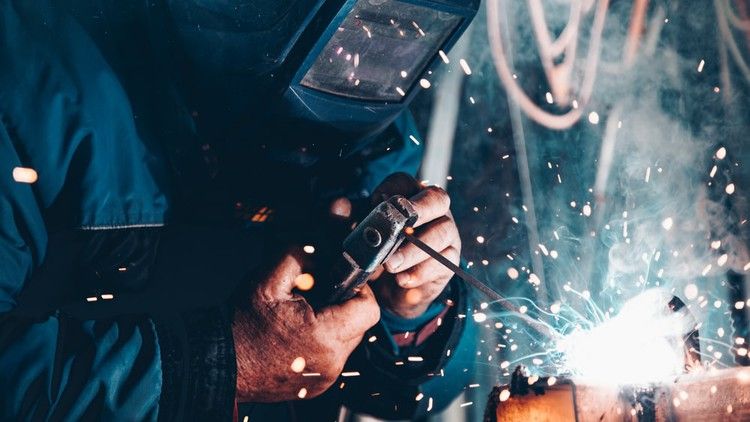
Certification in Welding Technology for Engineers |2022|
Description
This course is designed for the students of Mechanical and Processing Engineers who want to learn all the welding processes for their Examination point of for or for the Students who want to prepare them for the Welding Interview as this course covers all the welding processes in detail. This Course Includes the following topics.
Introduction and Fundamentals of the Welding Process and Welding Safety
- Fundamentals of welding
- Difference between joining and welding
- Advantages and Disadvantages of Welding
- History of welding
- Types of the welding process
- Components used for welding process (Filler material, Flux, and Electrolyte)
- Consumable and Non-consumable electrolyte
- Welding positions
- Welding Electrode Nomenclature
- Type of Weld Joints (Butt joint, Corner Joint, Lap joint, Tee Joint, Edge Joint)
- Types of Weld (Filler Weld, Groove Weld, Plug weld or slot weld, Spot and Seam weld, Flange and Surface Weld)
- Features of Fusion Welded Joints
- Physics of welding (Power Density and Numerical of Power Density)
- Heat Balance in Fusion Welding
- Welding as Commercial Operation
- Automation in Welding (Machine, Automatic and Robotic)
- Welding Safety
Arc Welding and Shielding and Types of Arc Welding
Welding Categories (Fusion Welding, Solid State Welding, Soldering and Brazing)
Arc Welding
Arc Shielding
The power source in Arc welding
Types of Arc Welding (Shielding metal arc welding, Gas Metal Arc Welding, Flux Cored Arc Welding, Submerged Arc Welding)
Gas Tungsten welding
Plasma arc welding
Understand all Types of Welding in Detail
- Oxyfuel arc welding
- Oxyacetylene welding
- Resistance welding
- Spot Welding
- Resistance seam welding
- Resistance projection welding
- Energy beam welding (Electron beam welding, Laser beam welding)
- Numerical Problems related to the welding processes
Numerical Problems Related to the Welding Processes
- Numerical Problems Related to the welding processes
Solid-State Welding with Types and Defects, Brazing and Soldering
- Solid-state welding
- Types of solid-state welding
- (Diffusion welding, Friction welding, and Ultrasonic welding)
- Welding Defects of Solid State Welding
- Brazing and Soldering
Successful graduates of the Welding Technology certificate can be employed as entry-level technicians in the welding and metalworking industries. Career opportunities also exist in construction, manufacturing, fabrication, sales, quality control, and welding-related self-employment.




